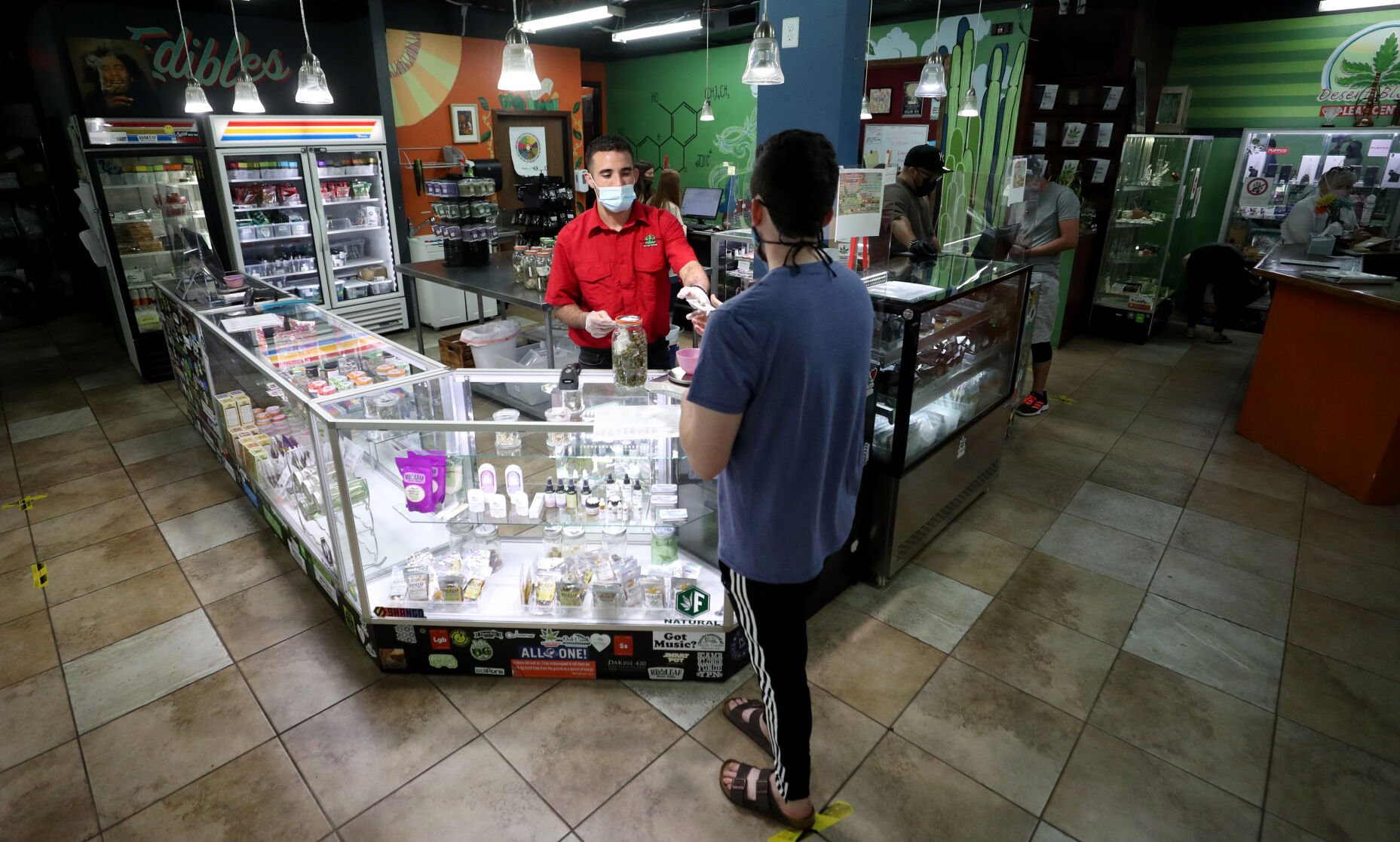The deadline to apply for a chance to win one of 26 social equity marijuana dispensary licenses, worth potentially millions of dollars, passed on Tuesday, with the state receiving more than 1,500 applications.
Not everyone, however, is pleased the applications were even accepted.
“All applications are now under review,” said Tom Herrmann, spokesman for the Arizona Department of Health Services, the agency in charge of regulating both the medical and recreational marijuana programs.
There were more than 1,500 applicants, Herrmann confirmed. Because applicants are not required to list a proposed location, it’s unknown how many are from Pima County, he said.
However, 30 applicants have the city of Tucson's name in their filed application name, like 420 MJ Tucson Enterprises LLC for example.
Herrmann could not confirm the date for the lottery determining the winners of the 26 licenses, because he said it would take time for the agency to sort through all the applicants to determine their viability.
We are sharing Arizona Daily Star reporters' and photographers' favorite work from 2021.
“There is no time for that review process to be completed, but with more than 1,500 applications to review the process could require a significant amount of time,” he said.
Passed as part of the Proposition 207 recreational marijuana proposal, the “social equity ownership” program sets aside 26 licenses for “people from communities disproportionately impacted by the enforcement of previous marijuana laws.”
Jon Udell, politics director for the Arizona branch of marijuana advocacy group the National Organization for the Reform of Marijuana Laws, or NORML, said he anticipates licenses fetching anywhere from $12 million to $17 million on the open market, should a licensee choose to "transfer" the license after acquiring it.
Udell said that's considerably more than the last round of licenses issued by the state, which were tied to specific rural counties and worth about $8 million. Social equity licenses can garner higher bids due to their relatively more lax location requirements, he said.
Some local critics, including someone tied to an application that made the deadline, are upset about such a huge profit motive. Some are upset the process went through at all.
“I don't think that the applications should have even been accepted at this point,” said Zsa Zsa Simone Brown, a Tucson resident and member of Acre41, a group of black female entrepreneurs focused on expanding access to Arizona’s burgeoning marijuana industry. The group applied for one of the social equity licenses.
Acre41 and the Urban League of Greater Phoenix are suing the state, AZDHS, and key political figures for what they argue is a failure on two fronts: to be inclusive enough and to stop established, multi-state cannabis corporations from buying social equity licenses once they are issued by the state through a lottery system.
“If they need to be transferred, then they need to be transferred to another social equity applicant,” said Celestia Rodriguez, an Acre41 member.
While the lawsuit is scheduled to be heard Jan. 28 in Maricopa County Superior Court, attorneys for the state health department and its current director, Donald Herrington, have filed a motion to dismiss the case.
“Plaintiffs (Acre41, the Greater Phoenix Urban League) lack standing, their claims are too late, and their claims also fail as a matter of law,” the motion says.
If Brown, Rodriquez and the rest of Acre41’s suit is successful, theoretically the state would be required to start the program from scratch, a result Brown believes would be beneficial toward building back a true social equity program.





